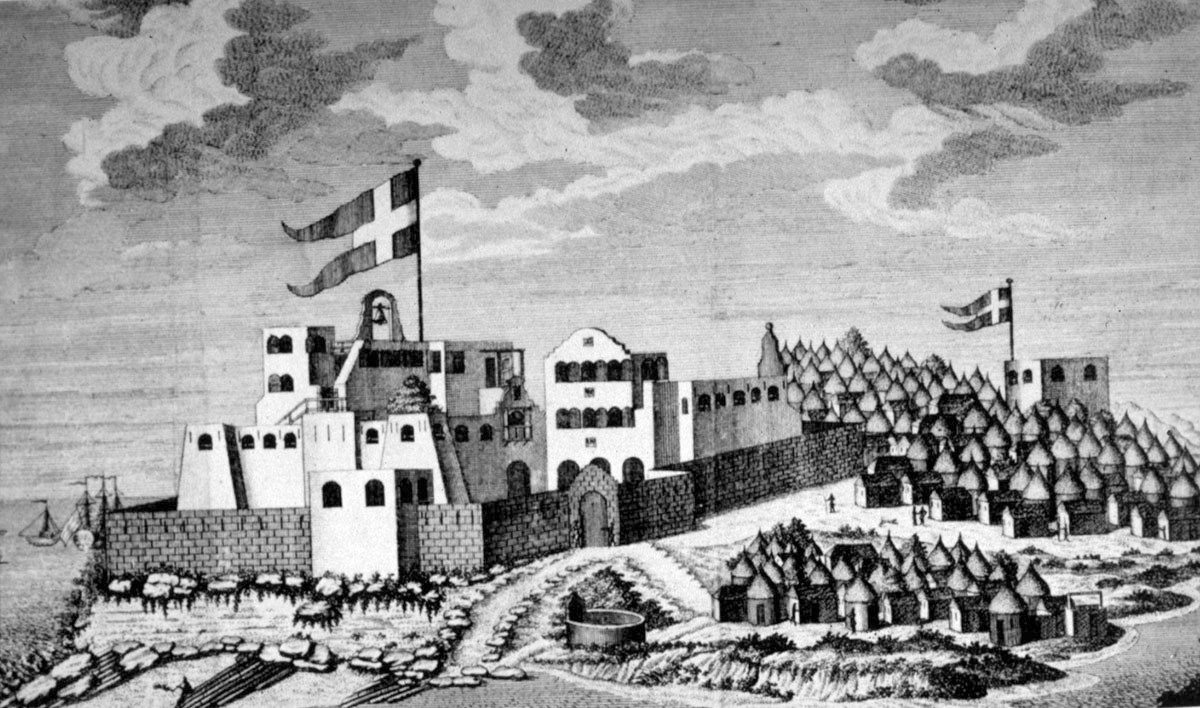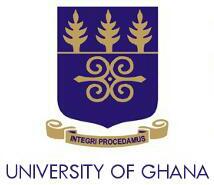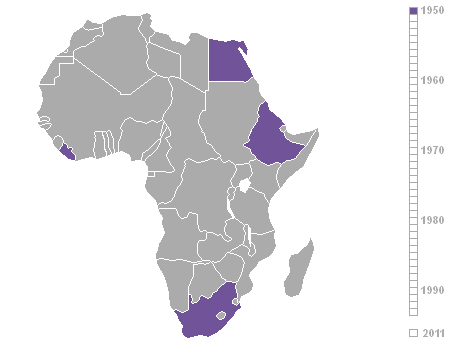|
John Donnelly Fage
John Donnelly Fage (3 June 1921–6 August 2002) was a British historian who was among the earliest academic historians specialising in African history, especially of the History of Africa#Medieval and Early Modern (6th to 18th centuries), pre-colonial period, in the United Kingdom and West Africa. He published a number of influential studies on West African history including ''Introduction to the History of West Africa'' (1955). He subsequently co-founded the ''Journal of African History'', the first specialist academic journal in the field, with Roland Oliver in 1960. Career Early life John Fage was born in Teddington in Middlesex, England on 3 June 1921. He was educated at Tonbridge School and Magdalene College, Cambridge from 1939 where he studied history but his studies were interrupted by World War II. Fage was conscripted into the Royal Air Force (RAF) in 1942 and was posted to Southern Rhodesia (modern-day Zimbabwe) as part of the British Commonwealth Air Training P ... [...More Info...] [...Related Items...] OR: [Wikipedia] [Google] [Baidu] |
Teddington
Teddington is a suburb in south-west London in the London Borough of Richmond upon Thames. In 2021, Teddington was named as the best place to live in London by ''The Sunday Times''. Historically in Middlesex, Teddington is situated on a long meander of the Thames between Hampton Wick and Strawberry Hill, Twickenham. Mostly residential, it stretches from the river to Bushy Park with a long high street of shops, restaurants and pubs. There is a suspension bridge over the lowest non-tidal lock on the Thames, Teddington Lock. At Teddington's centre is a mid-rise urban development, containing offices and apartments. Economy Teddington is bisected by an almost continuous road of shops, offices and other facilities running from the river to Bushy Park. There are two clusters of offices on this route; on the edge of Bushy Park the National Physical Laboratory, National Measurement Office and LGC form a scientific centre. Around Teddington station and the town centre are a number o ... [...More Info...] [...Related Items...] OR: [Wikipedia] [Google] [Baidu] |
Magdalene College, Cambridge
Magdalene College ( ) is a constituent college of the University of Cambridge. The college was founded in 1428 as a Benedictine hostel, in time coming to be known as Buckingham College, before being refounded in 1542 as the College of St Mary Magdalene. Magdalene counted some of the greatest men in the realm among its benefactors, including Britain's premier noble the Duke of Norfolk, the Duke of Buckingham and Lord Chief Justice Christopher Wray. Thomas Audley, Lord Chancellor under Henry VIII, was responsible for the refoundation of the college and also established its motto—''garde ta foy'' (Old French: "keep your faith"). Audley's successors in the Mastership and as benefactors of the College were, however, prone to dire ends; several benefactors were arraigned at various stages on charges of high treason and executed. The college remains one of the smaller in the University, numbering some 300 undergraduates. It has maintained strong academic performance over the pa ... [...More Info...] [...Related Items...] OR: [Wikipedia] [Google] [Baidu] |
Ghana
Ghana (; tw, Gaana, ee, Gana), officially the Republic of Ghana, is a country in West Africa. It abuts the Gulf of Guinea and the Atlantic Ocean to the south, sharing borders with Ivory Coast in the west, Burkina Faso in the north, and Togo in the east.Jackson, John G. (2001) ''Introduction to African Civilizations'', Citadel Press, p. 201, . Ghana covers an area of , spanning diverse biomes that range from coastal savannas to tropical rainforests. With nearly 31 million inhabitants (according to 2021 census), Ghana is the List of African countries by population, second-most populous country in West Africa, after Nigeria. The capital and List of cities in Ghana, largest city is Accra; other major cities are Kumasi, Tamale, Ghana, Tamale, and Sekondi-Takoradi. The first permanent state in present-day Ghana was the Bono state of the 11th century. Numerous kingdoms and empires emerged over the centuries, of which the most powerful were the Kingdom of Dagbon in the north and ... [...More Info...] [...Related Items...] OR: [Wikipedia] [Google] [Baidu] |
Gold Coast (British Colony)
The Gold Coast was a British Crown colony on the Gulf of Guinea in West Africa from 1821 until its independence in 1957 as Ghana. The term Gold Coast is also often used to describe all of the four separate jurisdictions that were under the administration of the Governor of the Gold Coast. These were the Gold Coast itself, Ashanti, the Northern Territories Protectorate and the British Togoland trust territory. The first European explorers To arrive at the coast were the Portuguese in 1471. They encountered a variety of African kingdoms, some of which controlled substantial deposits of gold in the soil. In 1483, the Portuguese came to the continent for increased trade. They built the Castle of Elmina, the first European settlement on the Gold Coast. From here they acquired slaves and gold in trade for European goods, such as metal knives, beads, mirrors, rum, and guns. News of the successful trading spread quickly, and British, Dutch, Danish, Prussian and Swedish traders ar ... [...More Info...] [...Related Items...] OR: [Wikipedia] [Google] [Baidu] |
Accra
Accra (; tw, Nkran; dag, Ankara; gaa, Ga or ''Gaga'') is the capital and largest city of Ghana, located on the southern coast at the Gulf of Guinea, which is part of the Atlantic Ocean. As of 2021 census, the Accra Metropolitan District, , had a population of 284,124 inhabitants, and the larger Greater Accra Region, , had a population of 5,455,692 inhabitants. In common usage, the name "Accra" often refers to the territory of the Accra Metropolitan District as it existed before 2008, when it covered .Sum of the land areas of Accra Metropolitan District, Ablekuma Central Municipal District, Ablekuma North Municipal District, Ablekuma West Municipal District, Ayawaso Central Municipal District, Ayawaso East Municipal District, Ayawaso North Municipal District, Ayawaso West Municipal District, Korle Klottey Municipal District, Krowor Municipal District, La Dadekotopon Municipal District, Ledzokuku Municipal District, and Okaikoi North Municipal District, as per the 2021 ce ... [...More Info...] [...Related Items...] OR: [Wikipedia] [Google] [Baidu] |
University Of Ghana
The University of Ghana is a public university located in Accra, Ghana. It the oldest and largest of the thirteen Ghanaian national public universities. The university was founded in 1948 as the University College of the Gold Coast in the British colony of the Gold Coast. It was originally an affiliate college of the University of London, which supervised its academic programs and awarded degrees. After Ghana gained independence in 1957, the college was renamed the University College of Ghana. It changed its name again to the University of Ghana in 1961, when it gained full university status. The University of Ghana is situated on the West view of the Accra Legon hills and at the northeast of the centre of Accra. It has over 40,000 registered students. Introduction The original emphasis on establishing the University of Ghana was on the liberal arts, social sciences, law, basic science, agriculture and medicine. However, as part of a national educational reform program, th ... [...More Info...] [...Related Items...] OR: [Wikipedia] [Google] [Baidu] |
African Decolonisation
The decolonisation of Africa was a process that took place in the Scramble for Africa, mid-to-late 1950s to 1975 during the Cold War, with radical government changes on the continent as Colonialism, colonial governments made the transition to Sovereign state, independent states. The process was often marred with violence, political turmoil, widespread unrest, and organised revolts in both northern and sub-Saharan countries including the Algerian War in French Algeria, the Angolan War of Independence in Portuguese Angola, the Congo Crisis in the Belgian Congo, the Mau Mau Uprising in Kenya Colony, British Kenya, the Zanzibar Revolution in the Sultanate of Zanzibar, and the Nigerian Civil War in the secessionist state of Biafra. Background The "Scramble for Africa" between 1870 and 1914 was a significant period of European imperialism in Africa that ended with almost all of Africa, and its natural resources, being controlled as colonies by a small number of European states. Racin ... [...More Info...] [...Related Items...] OR: [Wikipedia] [Google] [Baidu] |
New Imperialism
In historical contexts, New Imperialism characterizes a period of colonial expansion by European powers, the United States, and Japan during the late 19th and early 20th centuries. Com The period featured an unprecedented pursuit of overseas territorial acquisitions. At the time, states focused on building their empires with new technological advances and developments, expanding their territory through conquest, and exploiting the resources of the subjugated countries. During the era of New Imperialism, the Western powers (and Japan) individually conquered almost all of Africa and parts of Asia. The new wave of imperialism reflected ongoing rivalries among the great powers, the economic desire for new resources and markets, and a "civilizing mission" ethos. Many of the colonies established during this era gained independence during the era of decolonization that followed World War II. The qualifier "new" is used to differentiate modern imperialism from earlier imperi ... [...More Info...] [...Related Items...] OR: [Wikipedia] [Google] [Baidu] |
French Madagascar
The Colony of Madagascar and Dependencies (french: Colonie de Madagascar et dépendances) was a French colony off the coast of Southeast Africa between 1897 and 1958 in what is now Madagascar. The colony was formerly a protectorate of France known as Malagasy Protectorate. The protectorate became a colony, following Queen Ranavalona III's exile to island of Réunion. In 1958, the colonial administration in Madagascar was abolished, and it became autonomous territory of the French Community as the Malagasy Republic, which existed until 1975. History Background and French protectorate The United Kingdom had been an ally of Madagascar. In May 1862, John Russell, 1st Earl Russell, Britain's foreign secretary instructed Connolly Pakenham that Radama II should keep the country away from foreign powers. In 1882, the French started to occupy much of Madagascar's northern and western territories. In 1883, the Franco-Hova Wars commenced between France and Merina Kingdom, the war r ... [...More Info...] [...Related Items...] OR: [Wikipedia] [Google] [Baidu] |
British Commonwealth Air Training Plan
The British Commonwealth Air Training Plan (BCATP), or Empire Air Training Scheme (EATS) often referred to as simply "The Plan", was a massive, joint military aircrew training program created by the United Kingdom, Canada, Australia and New Zealand, during the Second World War.Hayter, Steven"History of the Creation of the British Commonwealth Air Training Plan." ''British Commonwealth Air Training Plan Museum,'' Retrieved: 18 October 2010. BCATP remains as one of the single largest aviation training programs in history and was responsible for training nearly half the pilots, navigators, bomb aimers, air gunners, wireless operators and flight engineers who served with the Royal Air Force (RAF), Royal Navy Fleet Air Arm (FAA), Royal Australian Air Force (RAAF), Royal Canadian Air Force (RCAF) and Royal New Zealand Air Force (RNZAF) during the war. Under a parallel agreement, the Joint Air Training Scheme, South Africa trained 33,347 aircrew for the South African Air Force and ot ... [...More Info...] [...Related Items...] OR: [Wikipedia] [Google] [Baidu] |
Zimbabwe
Zimbabwe (), officially the Republic of Zimbabwe, is a landlocked country located in Southeast Africa, between the Zambezi and Limpopo Rivers, bordered by South Africa to the south, Botswana to the south-west, Zambia to the north, and Mozambique to the east. The capital and largest city is Harare. The second largest city is Bulawayo. A country of roughly 15 million people, Zimbabwe has 16 official languages, with English, Shona language, Shona, and Northern Ndebele language, Ndebele the most common. Beginning in the 9th century, during its late Iron Age, the Bantu peoples, Bantu people (who would become the ethnic Shona people, Shona) built the city-state of Great Zimbabwe which became one of the major African trade centres by the 11th century, controlling the gold, ivory and copper trades with the Swahili coast, which were connected to Arab and Indian states. By the mid 15th century, the city-state had been abandoned. From there, the Kingdom of Zimbabwe was established, fol ... [...More Info...] [...Related Items...] OR: [Wikipedia] [Google] [Baidu] |





